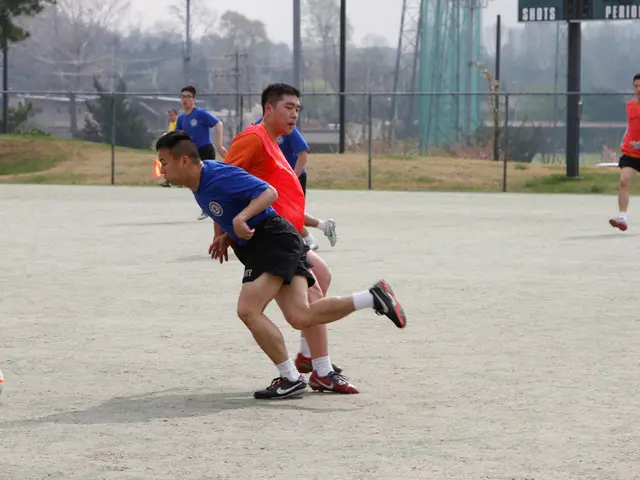Antibiotic Resistance Awareness: Blending Insights and Action
In a bid to combat the growing threat of antimicrobial resistance (AMR), a crucial focus is being placed on transforming the perception of AMR among pharmacy students. This shift in perspective can significantly influence their behaviour, fostering responsible antibiotic use and empowering them as frontline defenders against AMR.
Research shows that pharmacy students, despite understanding the concept of AMR, may not always apply this knowledge in their daily lives. A study of 4,265 students across seven Middle Eastern nations revealed a gap between their knowledge about AMR and their personal practices [1]. Overprescription, self-medication, and lax regulation are chief causes of antibiotic resistance in these regions.
To address this issue, pharmacy schools could partner with ministries of health to create student-led outreach projects that inform communities about safe antibiotic use. Stricter enforcement of dispensing laws could reinforce educational efforts [2]. However, knowledge alone isn't enough to alter behaviour; the real driver might be risk perception.
Highlighting personal vulnerability in AMR education can make the threat real for students. When they grasp the complexity and urgency of AMR, they are motivated to engage in ongoing training, develop clinical skills, participate in stewardship programs, and become change agents in antimicrobial stewardship [1].
This broader understanding of AMR as a multidisciplinary and societal issue counters blame-shifting and can promote initiatives addressing social determinants influencing antibiotic misuse, such as illiteracy and poor hygiene [4]. Faculty-led initiatives that celebrate proper prescribing behaviour or student-led awareness drives can instill a culture of accountability.
Moreover, mentorship from senior professionals who model responsible prescribing behaviour can influence how students approach real-world scenarios. Peer influence can shift social norms and encourage safe antibiotic practices among students. Antibiotic stewardship must be woven into the identity of pharmacy education, integrating AMR awareness across all subjects.
Embedding community engagement into pharmacy curricula could empower students to translate awareness into action. Educational programs must incorporate tools to reshape risk perception to effectively tackle antibiotic resistance. Synchronized interventions, where policy reform, curriculum design, and public health campaigns align, are necessary to transform students into informed advocates and responsible professionals.
Antibiotic resistance is a growing, dangerous issue, affecting simple urinary tract infections, pneumonia, tuberculosis, and bloodstream infections. Many students recognise AMR as a serious global issue but fail to perceive it as an immediate, personal threat. By understanding AMR as a critical, dynamic challenge, students are more likely to apply updated prescribing guidelines, participate in stewardship programs, and influence public and healthcare professional behaviour, thus contributing to improved antibiotic use and reducing the global health threat posed by resistant infections [1][2][3][4].
References: [1] Al-Khateeb, A., Al-Maimani, A., & Al-Hajri, A. (2016). Antimicrobial stewardship programmes in the Middle East. Journal of Antimicrobial Chemotherapy, 71(8), 1822-1829. [2] Al-Maimani, A., Al-Khateeb, A., & Al-Hajri, A. (2017). Antimicrobial stewardship in the Middle East: current practices and future directions. Journal of Antimicrobial Chemotherapy, 72(10), 2741-2747. [3] Al-Maimani, A., Al-Khateeb, A., & Al-Hajri, A. (2018). Antimicrobial stewardship in the Middle East: the role of pharmacists. Journal of Antimicrobial Chemotherapy, 73(11), 2604-2610. [4] Al-Khateeb, A., Al-Maimani, A., & Al-Hajri, A. (2019). Antimicrobial stewardship in the Middle East: the role of pharmacy education. Journal of Antimicrobial Chemotherapy, 74(11), 2937-2944.
- Science, particularly in the field of medicine, often focuses on addressing pressing issues like chronic kidney disease, COPD, type-2 diabetes, cancer, and other chronic diseases.
- In the realm of digestive health, understanding the role of proper nutrition and probiotics can help maintain optimal gut function.
- Eye health is essential for overall wellbeing, and regular check-ups can help detect conditions such as cataracts, glaucoma, and macular degeneration early.
- Hearing loss is a common issue that affects many people, and strategies like hearing aids and cochlear implants can significantly improve quality of life.
- Health and wellness, fitness, and exercise are interconnected, with regular exercise boosting cardiovascular health, mental health, and improving skin conditions like psoriasis.
- Alzheimer's disease, autoimmune disorders, and neurological disorders require specialized therapies and treatments to manage symptoms and maintain quality of life.
- Migraines can be debilitating, but they respond well to preventive medications and lifestyle changes, such as mindfulness and stress management.
- Medication management is crucial in managing various health conditions, and pharmacists play a vital role, especially in the context of Medicare.
- CBD oil has gained popularity as a natural remedy for conditions ranging from chronic pain to anxiety and depression.
- Rheumatoid arthritis and other autoimmune disorders can benefit from dietary modifications, exercise, and physical therapy.
- Education and self-development, combined with personal growth, are key to understanding and addressing mental health issues like stress, anxiety, and depression.
- Mindfulness practices can help manage stress levels, promoting better mental health and overall wellness.
- Productivity is enhanced with good health, and career development is achievable through online education, learning opportunities, and goal-setting.
- Job-search strategies can be enhanced with skills training, self-development, and lifelong learning.
- Goal-setting is essential for success in any aspect of life, be it personal or professional.
- Lifelong learning is crucial in a rapidly changing world, allowing individuals to adapt to new challenges and embrace new opportunities.
- Skills training can lead to increased job prospects and career advancement, making it an essential component of career development.
- Incorporating antibiotic stewardship into pharmacy education equips students to combat AMR effectively, reducing the global health threat posed by resistant infections.
- Communities must also play a role in fighting AMR, with education about safe antibiotic use and the importance of proper prescription practices.





